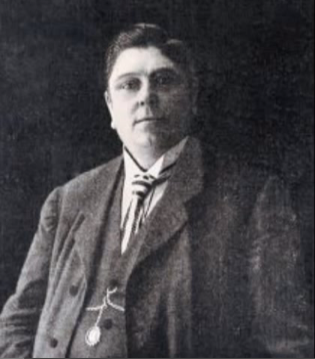Alessandro Moreschi: The Last Castrato
This fascinating 111 year old clip is the only recorded example of a musical phenomenon that'll make your eyes water...

Luckily, or indeed unfortunately if you’re reading this in the context of having watched X Factor recently, having one’s balls cut off isn’t a prerequisite for a successful singing career these days.
Between the 17th and 19th Century however, when opera singers enjoyed all the fame and fortune of the modern day pop stars, there was one style of voice which could potentially guarantee a life of celebrity for its owner and wealth for their family: the castrato.
The castrato singers were men with exceptionally high pitched voices, whose delivery, far more powerful than that of a female singer, drew huge attention wherever they travelled. Some composers thought of it as being the most perfect voice possible, and the crowds of thousands who’d turn up at concert halls across Europe to hear them sing agreed.
If you hadn’t worked it out already, to become a successful castrato and maintain your pre-pubescent vocal range throughout adulthood, you had to have your bollocks chopped off at a young age.
It seems like a high price to pay, but many poor families saw their offspring’s potential success as a way out of a life of poverty, and would put their sons through the primitive procedure, carried out with instruments that’d make Jack the Ripper wince, for their shot at stardom. The desire for fame was such that at one stage around 4,000 Italian boys were castrated each year. Needless to say this did not equate 4,000 successful castrato singers.
Castration was banned in Italy in 1870, and by 1903 the church had mercifully decreed that all castrati must be replaced by boys in the choir. Only one castrato was ever recorded, Alessandro Moreschi, who was a staple of the Sistine Chapel choir during the late 19th and early 20th century. It’s been said that this recording is of Moreschi way past his best and does not give an accurate representation of the opera-trained castrati of the 17th Century, the beauty of which we will never know, but it still undoubtedly serves as a fascinating, slightly eerie piece of history.
Follow Tom on Twitter @tomdisco
If you like it, Pass it on
 COMMENTS
COMMENTS
It's all bollocks. Or rather not
cant say he was havin a ball
Never mind the bollocks, here's the castrato


 RELATED
RELATED






 SABOTAGE
SABOTAGE





